- Home
- Darynda Jones
Fourth Grave Beneath My Feet
Fourth Grave Beneath My Feet Read online
The author and publisher have provided this e-book to you for your personal use only. You may not make this e-book publicly available in any way. Copyright infringement is against the law. If you believe the copy of this e-book you are reading infringes on the author’s copyright, please notify the publisher at: us.macmillanusa.com/piracy.
For Quentin,
part-time pimp, full-time ninja, who,
even at his age, still says things like,
“Thank you, Easter Bunny! Bok, bok!”
Acknowledgments
This book owes a lot of things to a lot of people, not the least of whom are my amazing agent, Alexandra Machinist, and my incredible editor, Jennifer Enderlin. Thank you guys so much! You are both awe-inspiring, and I’m convinced each of you lead secret lives as superheroes.
Thank you to everyone at Macmillan Audio and a special shout-out to the ever-so-lovely Lorelei King for breathing life into my characters. Literally. Speaking of which, thank you to all at St. Martin’s Press, Macmillan, and Janklow & Nesbit Associates.
A special thanks to Jacquelyn Frank and Natalie Justice for naming this book while waiting for a shuttle, war-torn and tattered after a lively three-day conference where the effervescent Natalie mastered mechanical-bull riding and Jacki won my heart over a game of X-rated Round Robin. You guys are the bomb.
Thank you so much to Mary Jo, Mary Ellen, and Bette for the consultations and advice on PTSD. You guys went above and beyond to help me, especially considering the fact that I only had three days to turn in the book. I am so grateful.
Thank you to Danielle “Dan Dan” Swopes for brainstorming with me even when your brain was almost as mushy as mine, and to your wonderful family whom I consider my own. And thank you to my actual family—you know who you are—for being so supportive and understanding when I miss holidays and birthday parties in the name of all things writerly. As soon as I make my next deadline, we are so having a cookout.
A huge thanks to Cait Allison for reading this book in its infancy, painful as it must have been, to give me feedback. I appreciate it more than you can know.
And, sadly, I have to say that at least three of the best lines in this book did not come from my own warped … er, vivid imagination, but that of the enlightened and sometimes terrifying musings of Jonathan “Doc” Wilson and Quentin “Q” Eakins. You guys are like crazy on whole wheat: fun and good for the digestion.
And most of all, thank you, esteemed reader, for making all my dreams come true. Or most of them. I have this one where I’m naked at an airport and … no, you’re right. That’s better left to the professionals. Either way, thank you so much! I hope you enjoy reading this as much as I enjoyed writing it.
Contents
Title Page
Copyright Notice
Dedication
Acknowledgments
Chapter 1
Chapter 2
Chapter 3
Chapter 4
Chapter 5
Chapter 6
Chapter 7
Chapter 8
Chapter 9
Chapter 10
Chapter 11
Chapter 12
Chapter 13
Chapter 14
Chapter 15
Chapter 16
Chapter 17
Chapter 18
Chapter 19
Chapter 20
Also by Darynda Jones
About the Author
Copyright
1
Only two things in life are certain.
Guess which one I am.
—CHARLEY DAVIDSON, GRIM REAPER
I sat watching the Buy From Home Channel with my dead aunt Lillian and wondered what my life would’ve been like had I not just eaten an entire carton of Ben & Jerry’s Chocolate Therapy with a mocha latte chaser. Probably about the same, but it was something to think about.
A midmorning sun filtered through the blinds and cut hard streaks of light across my body, casting me in an ultra-cool film noir effect. Since my life had definitely taken a turn toward the dark side, film noir fit. It would have fit even better if I weren’t wearing Star Wars pajama bottoms and a sparkly tank top that proudly proclaimed EARTH GIRLS ARE EASY. But I just didn’t have the energy that morning to change into something less inappropriate. I’d been having lethargy issues for a few weeks now. And I was suddenly a tad agoraphobic. Ever since a man named Earl tortured me.
It sucked.
The torture. Not his name.
My name, on the other hand, was Charlotte Davidson, but most people called me Charley.
“Can I talk to you, pumpkin cheeks?”
Or pumpkin cheeks, one of the many pet names involving the fall fruit that Aunt Lillian insisted on calling me. Aunt Lil had died sometime in the sixties, and I could see her because I’d been born the grim reaper, which basically meant three things: One, I could interact with dead people—those departed who didn’t cross over when they died—and usually did so on a daily basis. Two, I was super-duper bright to those in the spiritual realm, and the aforementioned dead people could see me from anywhere in the world. When they were ready to cross, they could cross through me. Which brought me to three—I was a portal from the earthly plane to what many refer to as heaven.
There was a tad more to it than that—including things I had yet to learn myself—but that was the basic gist of my day job. The one I didn’t actually get paid to do. I was also a PI, but that gig wasn’t paying the bills either. Not lately, anyway.
I rolled my head along the back of the sofa toward Aunt Lil, who was actually a great-aunt on my father’s side. A thin, elderly woman with soft gray eyes and pale blue hair, she was wearing her usual attire, as dead people rarely changed clothes: a leather vest over a floral muumuu and love beads, the ensemble a testament to her demise in the sixties. She also had a loving smile that tilted a bit south of kilter. But that only made me adore her all the more. I had a soft spot for crazy people. I wasn’t sure how the muumuu came into play, with her being so tiny and all—she looked like a pole with a collapsed tent gathered about her fragile hips—but who was I to judge?
“You can absolutely talk to me, Aunt Lil.” I tried to straighten but couldn’t get past the realization that movement of any kind would take effort. I’d been sitting on one sofa or another for two months, recovering from the torture thing. Then I remembered that the cookware I’d been waiting for all morning was up next. Surely Aunt Lil would understand. Before she could say anything, I raised a finger to put her in pause mode. “But can our talk wait until the stone-coated cookware is over? I’ve been eyeing this cookware for a while now. And it’s coated. With stone.”
“You don’t cook.”
She had a point. “So what’s up?” I propped my bunny-slippered feet on the coffee table and crossed my legs at the ankles.
“I’m not sure how to tell you this.” Her breath hitched, and she bowed her blue head.
I straightened in alarm despite the energy it took. “Aunt Lil?”
She tucked her chin in sadness. “I—I think I’m dead.”
I blinked. Stared at her a moment. Then blinked again.
“I know.” She sniffled into the massive sleeve of her muumuu, and the love beads shifted soundlessly with the movement. Inanimate objects in death carried an eerie silence. Like mimes. Or that scream Al Pacino did in The Godfather: Part III when his daughter died on those steps. “I know, I know.” She patted my shoulder in consolation. “It’s a lot to absorb.”
Aunt Lillian died long before I was born, but I had no idea if she knew that or not. Many departed didn’t. Because of this doubt, I’d never mentioned it. For years, I’d let her make me invisible coffee in the morning
s or cook me invisible eggs; then she’d go off on another adventure. Aunt Lil was still sowing her wild oats. A world traveler, that one. And she rarely stayed in one place very long. Which was good. Otherwise, I’d never get real coffee in the mornings. Or the twelve other times during the day I needed a java fix. If she were around more often, I’d go through caffeine withdrawal on a regular basis. And get really bad headaches.
But maybe now that she knew, I could explain the whole coffee thing.
I was curious enough about her death to ask, “Do you know how you died? What happened?”
According to my family, she’d died in a hippie commune in Madrid at the height of the flower power revolution. Before that, she really had been a world traveler, spending her summers in South America and Europe and her winters in Africa and Australia. And she’d continued that tradition even after her death, traveling far and wide. Passport no longer needed. But no one could really tell me how she died exactly. Or what she did for a living. How she could afford to do all that traveling when she was alive. I knew she’d been married for a while, but my family didn’t know much about her husband. My uncle thought he might’ve been an oil tycoon from Texas, but the family had lost contact, and nobody knew for certain.
“I’m just not sure,” she said, shaking her head. “I remember we were sitting around a campfire, singing songs and dropping acid—”
I used every ounce of strength I had to keep the horror I felt from manifesting in my expression.
“—and Bernie asked me what was wrong, but since Bernie had just done a hit of acid himself, I didn’t take him seriously.”
I could understand that.
She looked up at me, her eyes watering with sorrow. “Maybe I should have listened.”
I put an arm around her slight shoulders. “I’m so sorry, Aunt Lil.”
“I know, pumpkin head.” She patted my cheek, her hand cool in the absence of flesh and blood. She smiled that lopsided smile of hers, and I suddenly wondered if she’d perhaps dropped one hit too many. “I remember the day you were born.”
I blinked yet again in surprise. “Really? You were there?”
“I was. I’m so sorry about your mother.”
A harsh pang of regret shot through me. I wasn’t expecting it, and it took me a moment to recover. “I—I’m sorry, too.” The memory of my mother’s passing right after I’d been born was not my favorite. And I remembered it so clearly, so precisely. The moment she parted from her physical body, a pop like a rubber band snapping into place ricocheted through my body, and I knew our connection had been severed. I loved her, even then.
“You were so special,” Aunt Lil said, shaking her head with the memory. “But now that you know I’m a goner, I have to ask, why in tarnation are you so bright?”
Crap. I couldn’t tell her the truth, that I was the grim reaper and the floodlights came with the gig. She thought I was special, not grim. It just sounded so bad when I said it out loud. I decided to deflect. “Well, that’s kind of a long story, Aunt Lil, but if you want, you can pass through me. You can cross to the other side and be with your family.” I lowered my head, hoping she wouldn’t take me up on my offer. I liked having her around, as selfish as that made me.
“Are you kidding?” She slapped a knee. “And miss all the crap you get yourself into? Never.” After a disturbing cackle that brought to mind the last horror movie I’d seen, she turned back to the TV. “Now, what’s so groovy about this cookware?”
I settled in next to her and we watched a whole segment on pans that could take all kinds of abuse, including a bevy of rocks sliding around the nonstick bottom, but since people didn’t actually cook rocks, I wasn’t sure what the point was. Still, the pans were pretty. And I could make low monthly payments. I totally needed them.
I was on the phone with a healthy-sounding customer service representative named Herman when Cookie walked in. She did that a lot. Walked in. Like she owned the place. Of course, I was in her apartment. Mine was cluttered and depressing, so I’d resorted to loitering in hers.
Cookie was a large woman with black hair spiked every which way and no sense of fashion whatsoever, if the yellow ensemble she was wearing was any indication. She was also my best friend and receptionist when we had work.
I waved to her, then spoke into the phone. “Declined? What do you mean declined? I have at least twelve dollars left on that puppy, and you said I could make low monthly payments.”
Cookie bent over the sofa, grabbed the phone, and pushed the end-call button while completely ignoring the indignant expression I was throwing at her. “It’s not so much declined,” she said, handing the phone back to me, “as canceled.” Then she took the remote and changed the channel to the news. “I’ve put a stop to any new charges on your Home Shopaholic store card—”
“What?” I thought about acting all flustered and bent out of shape, but I was out of shape enough without purposely adding to the condition. In reality, I was a little in awe of her. “You can do that?”
The news anchor was talking about the recent rash of bank robberies. He showed surveillance footage of the four-man team, known as the Gentlemen Thieves. They always wore white rubber masks and carried guns, but they never drew them. Not once in the series of eight bank robberies, thus their title.
I was in the middle of contemplating how familiar they looked when Cookie took hold of my wrist and hefted me off her sofa. “I can do that,” she said as she nudged me toward the door.
“How?”
“Simple. I called and pretended to be you.”
“And they fell for it?” Now I was officially appalled. “Who did you talk to? Did you talk to Herman, because he sounds super cute. Wait.” I screeched to a halt before her. “Are you kicking me out of your apartment?”
“Not so much kicking you out as putting my foot down. It’s time.”
“Time?” I asked a little hesitantly.
“Time.”
Well, crap. This day was going to suck, I could already tell. “Love the yellow,” I said, becoming petty as she herded me out of her apartment and into mine. “You don’t look like a giant banana at all. And why did you cancel my favorite shopping channel in-store credit card? I only have three.”
“And they’ve all been canceled. I have to make sure I get paid every week. I’ve also funneled all of your remaining funds out of your bank account and into a secret account in the Cayman Islands.”
“You can funnel money?”
“Apparently.”
“Isn’t that like embezzling?”
“It’s exactly like embezzling.” After practically shoving me past my threshold, she closed the door behind us and pointed. “I want you to take a look at all this stuff.”
Admittedly, my apartment was a mess, but I still didn’t know what that had to do with my card. That card was a tool. In the right hands—like, say, mine—it could make dreams come true. I looked around at all the boxes of super-cool stuff I’d ordered: everything from magical scrubbing sponges for the everyday housewife to two-way radios for when the apocalypse hit and cell phones became obsolete. A wall of boxes lined my apartment, ending in a huge mountain of superfluous products in one specific area of the room. Since my apartment was about the size of a Lego, the minute amount that was left was like a broken Lego. A disfigured one that hadn’t survived the invasion of little Lego space aliens.
And there were more boxes behind the wall of boxes we could actually see. I’d completely lost Mr. Wong. He was a dead guy who lived in the corner of my living room, perpetually hovering with his back to the world. Never moving. Never speaking. And now he was lost to the ecology of commerce. Poor guy. His life couldn’t have been exciting.
Of course, it didn’t help that I’d also moved out of my offices and brought all my files and office equipment to my apartment. My kitchen, actually, making it completely useless for anything other than file storage. But it had been a necessary move, as my dad had betrayed me in the worst way possible�
��he’d had me arrested as I lay in a hospital bed after being tortured by a madman—and my offices had been above his bar. I had yet to discover what possessed my own father to have me arrested in such an outlandish and hurtful manner. He’d wanted me out of the PI biz, but his timing and modus operandi needed work.
Sadly, the bar was only about fifty feet north of my apartment building, so I would have to avoid him when coming and going from my new work digs. But since I hadn’t actually left the apartment building in over two months, that part had been easy. The last time I left was to clear out my offices, and I’d made sure he was out of town when I did so.
I surveyed all the boxes and decided to turn the tables on Cookie. To play the victim. To blame the whole thing on her. I pointed at an Electrolux and gaped at her. “Who the hell left me unsupervised? This has to be your fault.”
“Nice try,” she said, completely unmoved. “We’re going to sort through all of this stuff and send back everything except what you’ll actually use. Which is not a lot. Again, I would like to continue collecting a paycheck, if that’s not too much to ask.”
“Do you take American Express?”
“Oh, I canceled that, too.”
I gasped, pretending to be appalled. With a determined set to her shoulders, she led me to my own sofa, took boxes off it, piled them on top of other boxes, then sank down beside me. Her eyes shimmered with warmth and understanding, and I became instantly uncomfortable. “Are we going to have the talk again?”
“I’m afraid so.”
“Cook—” I tried to rise and storm off, but she put a hand on my shoulder to stop me “—I’m not sure how else to say that I’m fine.” When she looked down at Margaret, who sat nestled inside my hip holster, my voice took on a defensive edge. “What? Lots of PIs wear guns.”
“With their pajamas?”
I snorted. “Yes. Especially if they’re Star Wars pajamas and your gun just happens to resemble a blaster.”
Margaret was my new best friend. And she’d never funneled money out of my bank account like some other best friends who shall not be named.

 For I Have Sinned
For I Have Sinned First Grave on the Right
First Grave on the Right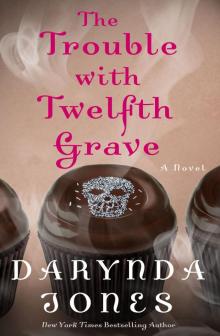 The Trouble With Twelfth Grave
The Trouble With Twelfth Grave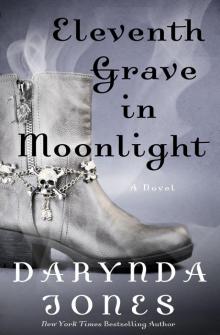 Eleventh Grave in Moonlight
Eleventh Grave in Moonlight Brighter Than the Sun
Brighter Than the Sun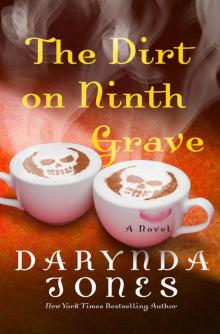 The Dirt on Ninth Grave
The Dirt on Ninth Grave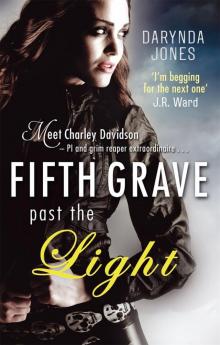 Fifth Grave Past the Light
Fifth Grave Past the Light Death, Doom and Detention
Death, Doom and Detention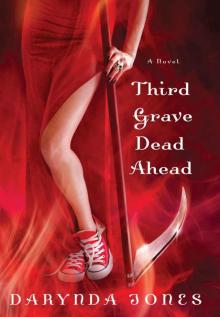 Third Grave Dead Ahead
Third Grave Dead Ahead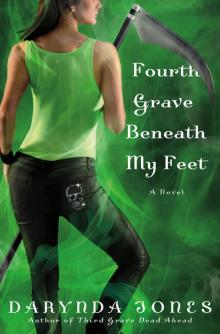 Fourth Grave Beneath My Feet
Fourth Grave Beneath My Feet Death and the Girl Next Door
Death and the Girl Next Door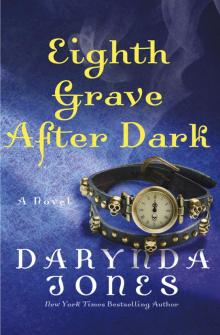 Eighth Grave After Dark
Eighth Grave After Dark Second Grave on the Left
Second Grave on the Left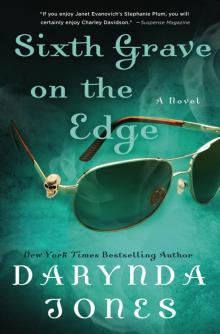 Sixth Grave on the Edge
Sixth Grave on the Edge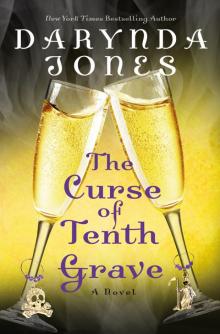 The Curse of Tenth Grave
The Curse of Tenth Grave Bewitched: A Paranormal Women's Fiction Novel (Betwixt & Between Book 2)
Bewitched: A Paranormal Women's Fiction Novel (Betwixt & Between Book 2)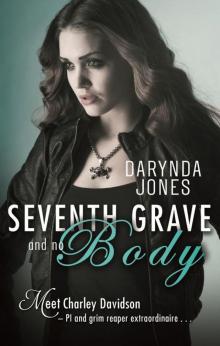 Seventh Grave and No Body
Seventh Grave and No Body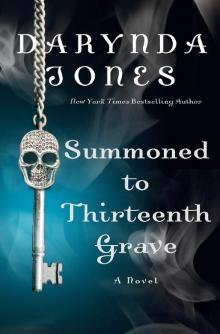 Summoned to Thirteenth Grave (Charley Davidson #13)
Summoned to Thirteenth Grave (Charley Davidson #13) A Good Day for Chardonnay
A Good Day for Chardonnay Death, and the Girl He Loves
Death, and the Girl He Loves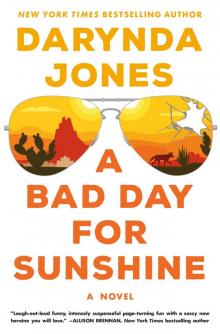 A Bad Day for Sunshine--A Novel
A Bad Day for Sunshine--A Novel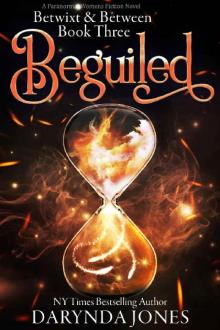 Beguiled
Beguiled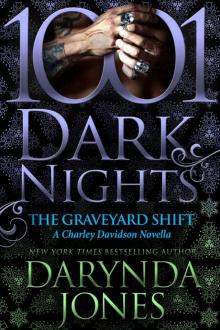 The Graveyard Shift: A Charley Davidson Novella
The Graveyard Shift: A Charley Davidson Novella Death and the Girl Next Door d-1
Death and the Girl Next Door d-1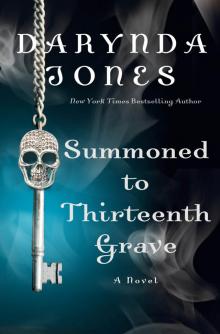 Summoned to Thirteenth Grave
Summoned to Thirteenth Grave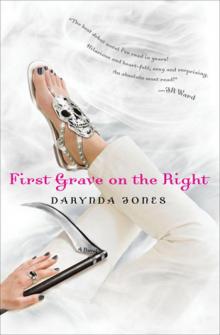 First Grave on the Right cd-1
First Grave on the Right cd-1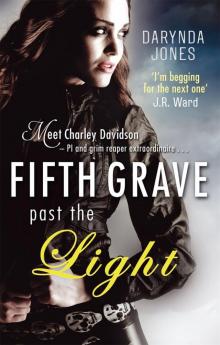 Fifth Grave Past the Light: Number 5 in series (Charley Davidson)
Fifth Grave Past the Light: Number 5 in series (Charley Davidson)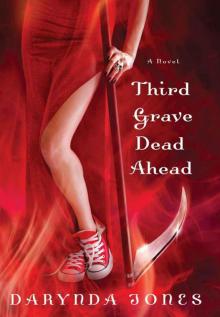 Third Grave Dead Ahead cd-3
Third Grave Dead Ahead cd-3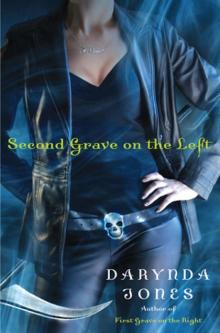 Second Grave on the Left cd-2
Second Grave on the Left cd-2